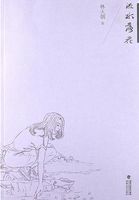The custom of kindling bonfires on Midsummer Day or on Midsummer Eve is widely spread among the Mohammedan peoples of North Africa, particularly in Morocco and Algeria; it is common both to the Berbers and to many of the Arabs or Arabic-speaking tribes. In these countries Midsummer Day (the twenty-fourth of June, Old Style) is called l'ánsara. The fires are lit in the courtyards, at cross-roads, in the fields, and sometimes on the threshing-floors. Plants which in burning give out a thick smoke and an aromatic smell are much sought after for fuel on these occasions; among the plants used for the purpose are giant-fennel, thyme, rue, chervil-seed, camomile, geranium, and penny-royal.
People expose themselves, and especially their children, to the smoke, and drive it towards the orchards and the crops. Also they leap across the fires; in some places everybody ought to repeat the leap seven times. Moreover they take burning brands from the fires and carry them through the houses in order to fumigate them. They pass things through the fire, and bring the sick into contact with it, while they utter prayers for their recovery. The ashes of the bonfires are also reputed to possess beneficial properties; hence in some places people rub their hair or their bodies with them. In some places they think that by leaping over the fires they rid themselves of all misfortune, and that childless couples thereby obtain offspring. Berbers of the Rif province, in Northern Morocco, make great use of fires at midsummer for the good of themselves, their cattle, and their fruit-trees. They jump over the bonfires in the belief that this will preserve them in good health, and they light fires under fruit-trees to keep the fruit from falling untimely. And they imagine that by rubbing a paste of the ashes on their hair they prevent the hair from falling off their heads. In all these Moroccan customs, we are told, the beneficial effect is attributed wholly to the smoke, which is supposed to be endued with a magical quality that removes misfortune from men, animals, fruit-trees and crops.
The celebration of a midsummer festival by Mohammedan peoples is particularly remarkable, because the Mohammedan calendar, being purely lunar and uncorrected by intercalation, necessarily takes no note of festivals which occupy fixed points in the solar year; all strictly Mohammedan feasts, being pinned to the moon, slide gradually with that luminary through the whole period of the earth's revolution about the sun. This fact of itself seems to prove that among the Mohammedan peoples of Northern Africa, as among the Christian peoples of Europe, the midsummer festival is quite independent of the religion which the people publicly profess, and is a relic of a far older paganism.
6. The Hallowe'en Fires
FROM THE FOREGOING survey we may infer that among the heathen forefathers of the European peoples the most popular and widespread fire-festival of the year was the great celebration of Midsummer Eve or Midsummer Day. The coincidence of the festival with the summer solstice can hardly be accidental. Rather we must suppose that our pagan ancestors purposely timed the ceremony of fire on earth to coincide with the arrival of the sun at the highest point of his course in the sky. If that was so, it follows that the old founders of the midsummer rites had observed the solstices or turning-points of the sun's apparent path in the sky, and that they accordingly regulated their festal calendar to some extent by astronomical considerations.
But while this may be regarded as fairly certain for what we may call the aborigines throughout a large part of the continent, it appears not to have been true of the Celtic peoples who inhabited the Land's End of Europe, the islands and promontories that stretch out into the Atlantic Ocean on the North-West. The principal fire-festivals of the Celts, which have survived, though in a restricted area and with diminished pomp, to modern times and even to our own day, were seemingly timed without any reference to the position of the sun in the heaven. They were two in number, and fell at an interval of six months, one being celebrated on the eve of May Day and the other on Allhallow Even or Hallowe'en, as it is now commonly called, that is, on the thirty-first of October, the day preceding All Saints' or Allhallows' Day. These dates coincide with none of the four great hinges on which the solar year revolves, to wit, the solstices and the equinoxes. Nor do they agree with the principal seasons of the agricultural year, the sowing in spring and the reaping in autumn. For when May Day comes, the seed has long been committed to the earth; and when November opens, the harvest has long been reaped and garnered, the fields lie bare, the fruit-trees are stripped, and even the yellow leaves are fast fluttering to the ground. Yet the first of May and the first of November mark turning-points of the year in Europe; the one ushers in the genial heat and the rich vegetation of summer, the other heralds, if it does not share, the cold and barrenness of winter. Now these particular points of the year, as has been well pointed out by a learned and ingenious writer, while they are of comparatively little moment to the European husbandman, do deeply concern the European herdsman; for it is on the approach of summer that he drives his cattle out into the open to crop the fresh grass, and it is on the approach of winter that he leads them back to the safety and shelter of the stall.















